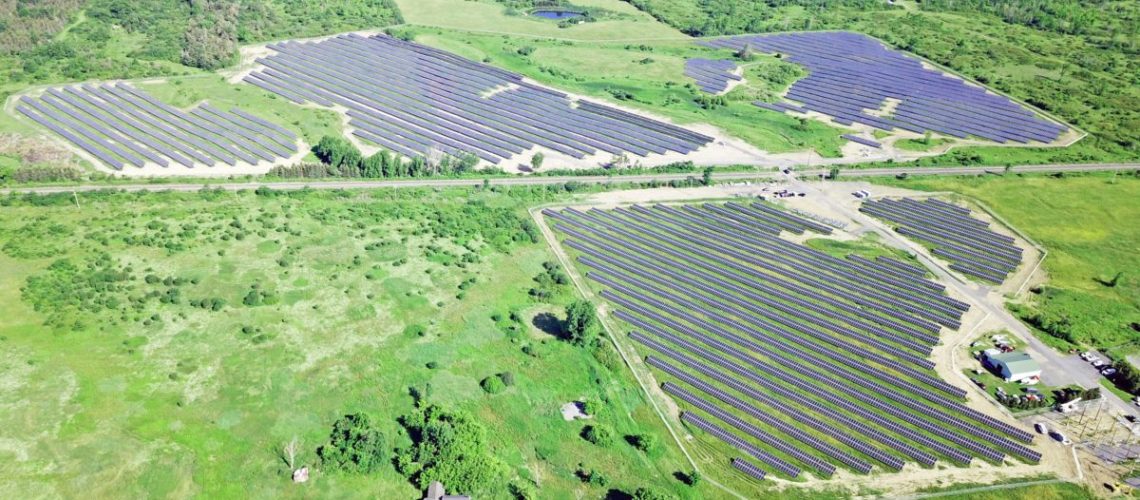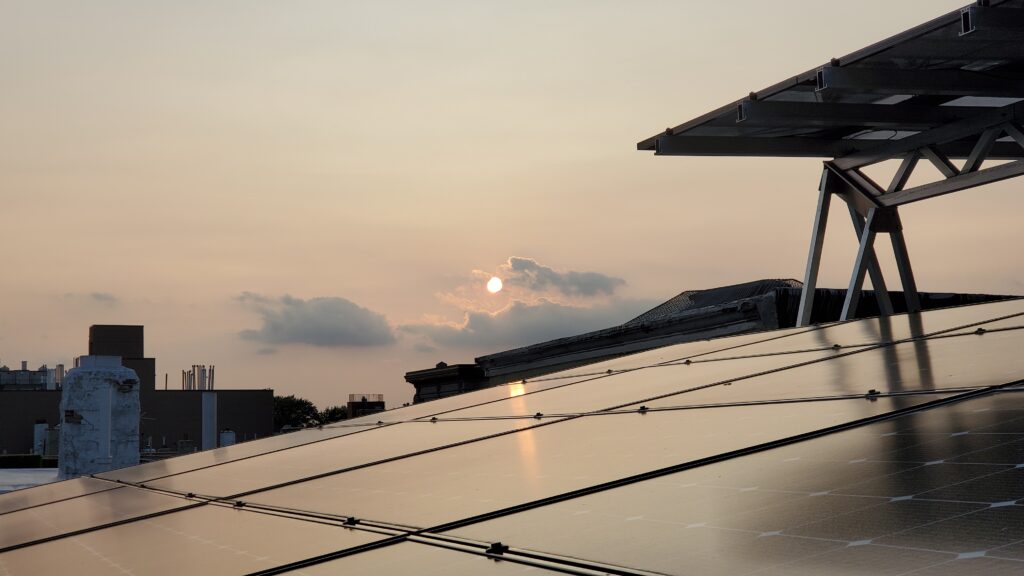The U.S. can play a big role in lowering carbon emissions, but to achieve our country’s climate goals we must deploy 70 GW of solar a year for the next few years.
The U.S. Commerce Department’s preliminary decision on the Auxin Solar Anti-Dumping/Countervailing Duties (AD/CVD) case is not good for the solar industry. By extension, it is not good for our country or our communities. Solar is one of our best tools for reducing carbon emissions. Solar provides a significant boost to our economy, creating good local jobs that can’t be outsourced. And, when paired with energy storage, solar increases resilience for our communities in the face of increasing natural disasters exacerbated by climate change.
The world is not yet on track to limit global warming to 1.5 degrees Celsius compared to pre-industrial levels, but solar can help us change that trajectory. The U.S. can play a big role, but to lower carbon emissions sufficiently and achieve our country’s climate goals, we have to deploy 70 GW of solar a year in the next few years.
At this critical moment in the fight against climate change, we need more solar, not less. The Commerce Department’s decision will slow down solar deployment at a time when we must rapidly accelerate it.
Even before last week’s decision, the AD/CVD case had put a serious damper on the solar industry. In anticipation that the December preliminary decision could impose retroactive tariffs, many manufacturers immediately halted shipments to the U.S. Our industry, already dealing with pandemic-related supply chain and labor issues, saw 24% less solar capacity installed in Q1 2022 than in the same quarter last year. This is the opposite of what was expected and the opposite of what should be happening.
Solar jobs have been growing five times faster than the overall economy and more rapidly than jobs in other energy sectors. Solar installations in 2021 broke records despite the pandemic. But the Solar Energy Industries Association (SEIA) estimated that the AD/CVD case could result in 70,000 job losses and a 46% decrease in solar installations this year and next. Even domestic solar manufacturers anticipated negative impacts from the case.
What makes this even worse is that trade cases generally have little to no positive impact on domestic manufacturing. What does make an impact is supportive legislation. We have that now in the Inflation Reduction Act (IRA), which SEIA expects to lead to a “renaissance in American solar manufacturing.” However, the effects of the IRA will not be immediate. It takes time for a solar panel factory to get up and running. SEIA has been clear that even with the IRA, it will be 2030 before U.S. domestic solar manufacturing reaches the capacity we need for the industry goal of 50 GW.
The Biden Administration’s two-year halt on tariffs, which did provide a reprieve from the worst effects of the AD/CVD case, will only take us to June 2024. That is simply not enough time to establish a robust solar manufacturing capacity in the U.S., which currently produces about 7.5 GW of solar panels yearly. The IRA could increase that number to 15 GW in the next two years, but that would still not be nearly enough capacity to rely solely on domestic panels.
The preliminary Commerce decision could have been worse. The decision did not target all imports from the countries cited in the case, and it left room for companies in those countries to certify that they are not circumventing the AD/CVD orders. But it remains to be seen what will be involved in the certification process. And as SEIA noted, the decision will still “strand billions of dollars’ worth of American clean energy investments and result in the significant loss of good-paying, American, clean energy jobs.”
Just a little over a year ago, the Commerce Department ruled that a similar trade petition had no merit. The current case is based on the false claim that solar cell manufacturing is a minor or insignificant operation in the countries cited; the reality in those countries is that solar manufacturing by far exceeds what is considered minor or insignificant according to the anti-circumvention statute.
With long-term projects making up a significant portion of the solar industry, we need long-term policy certainty, a robust supply chain, and predictable prices. The disruptive AD/CVD case has caused a serious distraction and impediment for our industry at a time when we should be seeing expansive growth.
It’s not too late to change course on this misguided preliminary ruling. Commerce’s final decision on the case is expected in May 2023. The Department can fix its mistake by amending it. If necessary, the Biden Administration can step in again to extend the tariff moratorium. Our nation’s clean energy goals are riding on this.
We must all pull together now to ensure that this baseless case brought by one small solar company does not derail an entire industry. This is the time for solar to shine, and we need to ensure the conditions are right for that to happen.
Scott Wiater is president and CEO of Standard Solar.





